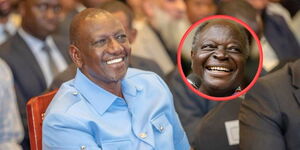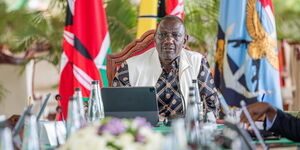Super-rich Kenyans explored new avenues to multiply their wealth from the start of the 2022 financial year.
With Kenyans learning the most common ways of gaining wealth, bourgeoisies channeled their investments in different sectors which paid off by the end of the fourth quarter in 2022.
Among the new ways they explored to gain wealth included purpose-built student accommodation (PBSA), Non-Fungible Tokens (NFT), collectible arts, Public-Private Partnerships (PPP) and even in wines.
The luxury investment index beat fast movers in the market, such as flashy cars and posh apartments.
Purpose-built student accommodation (PBSA)
According to Knight Frank, a real estate agents and managers company, investments in purpose-built student accommodation (PBSA) performed better in Kenya than residential apartments.
According to Knight Frank's 2022 Second Half report, organised student hostels attracted 8 per cent returns compared to 4 per cent collected from residential apartments in the real estate sector.
Dollar millionaires in Kenya shifted to purpose-built student accommodation due to the increasing demands for student accommodation, thus building hostels in Northlands, Hurligham, Parklands and even areas adjacent to Kenyatta University.
"It is expected that PBSA will remain more profitable in the foreseeable future as universities (public and private) struggle to accommodate the ever-increasing number of students," the report projected.
Public Private Partnership (PPP)
Kenya's elite and connected tycoons also multiplied their wealth through Public Private Partnerships (PPP).
PPP is an agreement between the public and private sectors to design, plan, finance and even construct a specified project. Kenyans with private companies enter into deals with the government to finance certain projects and then recoup the money after some time.
In Kenya, PPP gained traction due to increasing demand for affordable services in transport, water, sewerage, telecommunication and social services.
Non-Fungible Tokens
Non-Fungible Tokens are blockchain-based tokens representing a unique asset like a piece of art, digital content, or media.
Knight Frank intelligence lab projected a surge in Non-Fungible Tokens (NFT) sales in 2022.
"The younger generations, who are known to be more tech-savvy and the most educated, find the NFT art marketplace especially appealing due to the rising and unpredictable prices – which is exciting for them as it is an opportunity to flip the collectibles into profits digitally while being untraceable," Knight Frank's report indicated.
Luxury Drinks
In 2022, a report by Visual Capitalist themed The World's Billionaires by Generation indicated that about 9 per cent of the world's super-rich invest in the food and beverage industry.
The report attributed the shift to an exponential demand for burgundy and champagne, whose supply was limited.
"More people today are interested in wine as an investment choice either to make money or for later consumption. Kenyans are more knowledgeable about wine now than ever before. We are importing more wine varieties than any country in Africa," a wine expert stated.
Buying Shares
Super rich in the country also resolved to buy shares in overperforming companies, which recorded double returns by the end of 2022 financial year.
Also trading in bonds recorded an increase during the same period. The shift was due to the ravaging effects of the pandemic, which forced many companies to shut down.
Luxury Watches
In other collectible arts, the report by Visual Capitalist indicated that dollar millionaires had invested in luxury watches. Vintage watches attract double prices in an auction market, according to a report filed by New York Times in 2019.
The report further indicated that some companies were offering people a chance to invest in rare and limited-edition watches at prices that can be 50 percent or more below retail.
In Kenya, former Mombasa Governor Ali Hassan Joho, former Interior Cabinet Secretary Fred Matiang'i and former National Treasury CS Henry Rotich were photographed wearing expensive watches.












